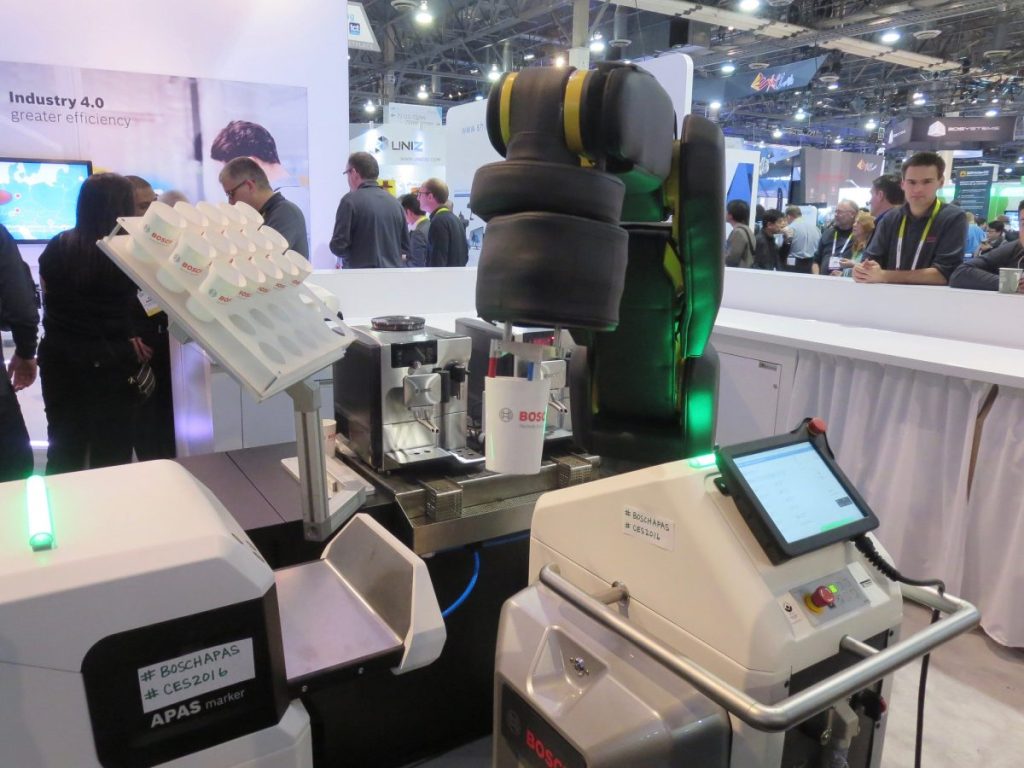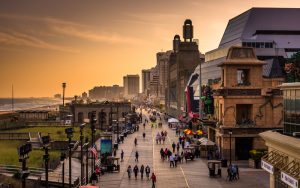Robot baristas and AI chefs spark uproar at CES 2024 as casino union workers fear for their jobs – CDC Gaming reports

LAS VEGAS (AP) — The barista placed a jug of smooth, frothy milk over the latte, pouring it slowly at first, then lifting and tilting the jug like a ballroom dancer to trace the lavender petals.
Latte art is a skill that can take months if not years of practice to master — but not for this AI-powered barista.
Robots of all kinds made waves on the show floor this week at the annual technology trade show CES in Las Vegas.
Such innovations worry Roman Alejo, a 34-year-old barista at the Sahara Hotel and Casino on the Las Vegas Strip, who can’t help but wonder if the clock is ticking on hospitality jobs in the age of artificial intelligence.
“It’s very scary, because tomorrow is never promised,” he said. “There is a lot of artificial intelligence coming into this world. It is very scary and surprising to see how humans can think of replacing other humans.
The world’s largest tech show has brought those concerns back into the spotlight just over a month after the Las Vegas casino workers union ratified new contracts for 40,000 members, ending a bitter high-profile fight that drew attention to the threat of artificial intelligence to union jobs. .
“Technology was a strike issue and one of the last issues to be resolved,” said Ted Papagioorg, treasurer of the Culinary Workers Union who led teams that negotiated new five-year contracts, narrowly averting a historic strike in more than a year. Dozens of hotels and casinos on the Strip.
Hospitality workers told The Associated Press in interviews over eight months of bargaining that they were willing to accept a pay cut during a strike to gain stronger job protections against inevitable advances in technology. This includes technology already in use at some resorts: self-check-in stations, automated ticketing services, and robotic bartenders known as “drunken robots.”
Papageorge said that the emergence of robots in the hospitality and services sector has been on the union’s radar for years. The difference now “is a combination of artificial intelligence and robotics,” he told The Associated Press this week.
Experts say advances in artificial intelligence technology have forced labor unions to rethink how they negotiate with companies.
Unions must now be “more intentional” in their negotiations for job security, said Bill Werner, an associate professor in the hospitality department at the University of Nevada, Las Vegas.
The types of casino union jobs at risk could look very different five years from now when, say, a culinary union contract expires.
“What will happen to these people and what rights do they have?” He said. “What would happen to them if they lost their jobs to a robot?”
In its last contract, the union strengthened a so-called safety net for workers, winning $2,000 in severance pay for each year worked if a job is eliminated by technology or artificial intelligence, as well as the option to try moving to a different department within the company. Company.
They must “develop a new language” that protects workers from today’s technology and “technology we don’t even know is coming,” Papageorge said.
“The idea that technology and robots and artificial intelligence are running wild without any control at all can cause incredible harm,” Papageorge said. “So what we have to do is get ahead of the curve, and CES is where it is.”
More than 100 union members attended the trade show this week to explore emerging technology that could put more casino jobs at risk.
And there was a lot new on the show floor: robots with friendly faces that complete deliveries at hotels and restaurants. Robotic masseuse. Robots that can prepare and serve coffee, ice cream, or boba. Smart grills powered by artificial intelligence can handle tasks like grilling and browning without a human being in the kitchen. Chef-like robots are looking to a future with “autonomous restaurants,” as one company puts it.
Meng Wang, co-founder of food tech startup Artly Coffee, one of more than 4,000 exhibitors at this year’s CES, said he’s not cutting jobs. Wang said Artly’s autonomous barista robots could help fill the labor shortage in the service industry.
“Baristas have a tough job. It’s a labor-intensive process and long hours. The pay isn’t good,” he said. “What we’re doing is not replacing jobs. We are filling a market need and bringing specialty coffee to more places.
But Werner said AI poses a real threat to casino union jobs that don’t require face-to-face interaction with customers — for example, housekeeping, food preparation and cooks.
“When the industry doesn’t have to worry about the impact on customer service, it takes away a lot of the risk from automation,” he said. This is especially true in crowd-pleasing destinations like the Las Vegas Strip, where customers expect first-class service and experiences, including the latest trends in technology.
This makes Las Vegas “a good place to test these things and see how customers react to them,” he said.
The Culinary Federation and its members, like Alejo, Barista, recognize that the hospitality industry is constantly evolving.
“The innovations are amazing,” Alejo said. “But it’s very scary that everything in today’s world revolves around technology.”







